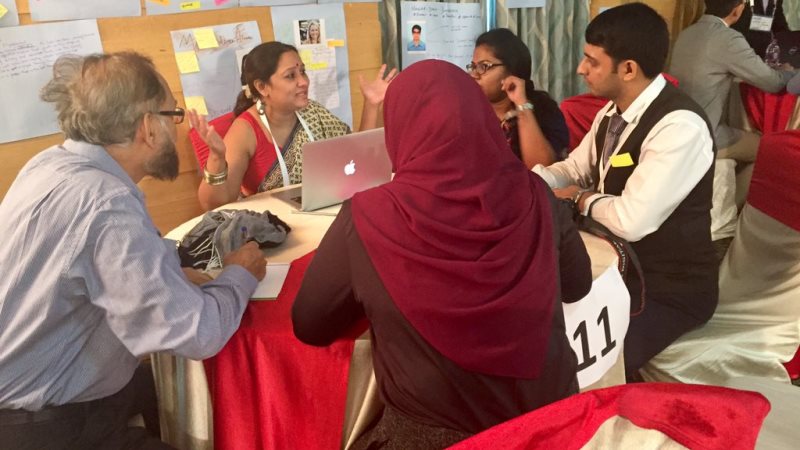
The State Department hosted a technology camp in Hyderabad, India, which focused on projects to combat violent extremism.
The participants worked on online campaigns, digital storytelling, data visualization, and using online education tools to promote peace and understanding in their communities. They collaborated with civil society leaders, journalists, social media experts, technologists, and religious leaders from the U.S. State Department, Google, the Wilson Center, 270 Strategies, the BBC, and the NoHateSpeech Movement.
The participants were from India, Bangladesh, Indonesia, the Maldives, Philippines, Singapore, and Sri Lanka, and were nominated by the U.S. embassies in their respective countries.
The program was part of the State Department’s 5-year-old TechCamp initiative to bring solutions to challenges using low-cost, easy-to-implement technological tools to various countries. The State Department has run more than 40 TechCamps for participants in more than 110 countries.
“We are building a global partnership against violent extremism,” said Secretary of State John Kerry in February 2015. “Success requires showing the world the power of peaceful communities instead of extremist violence. Success requires offering a vision that is positive and proactive: a world with more concrete alternatives to the nihilistic worldview of violent extremists.”
The students discussed challenges to combating extremism in the digital age and created a campaign, which countered online hate and misinformation by sharing stories of individuals that promoted coexistence and multiculturalism.
Other initiatives included direct messaging and podcasts focused on empowering women, education technology tools that help community building, and educational resources for university dropouts.
“I always wanted to launch my ideas to tackle negative issues,” said Newaz Hossain, a participant from Bangladesh working on the education platform.
The State Department and the Confederation of Voluntary Associations plans to offer the participants additional funding and training opportunities to assist them in developing the digital campaigns, apps, and initiatives that they worked on during the technology camp.
